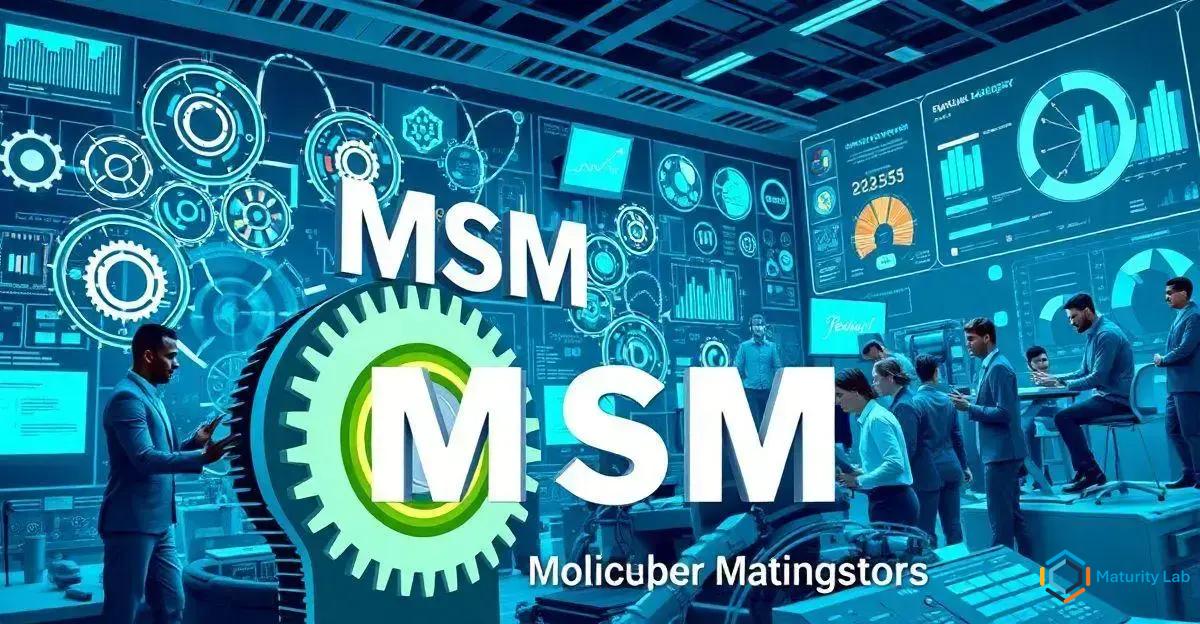The Maturity System Model (MSM) is a structured framework aimed at improving organizational processes by assessing current capabilities, standardizing operations, and implementing performance metrics. It emphasizes continuous improvement through thorough evaluations, employee training, and technology integration, enabling organizations to enhance efficiency and achieve long-term success.
In today’s competitive business environment, achieving operational efficiency is paramount. One effective way to enhance this is through the Maturity System Model (MSM). By focusing on initial capability, MSM provides a structured approach to improving processes and achieving better outcomes. This article delves into how MSM can be leveraged to boost initial capability and operational efficiency, offering practical insights and strategies for implementation.
Understanding MSM and Its Role in Initial Capability

The Maturity System Model (MSM) is a comprehensive framework designed to assess and enhance the maturity of organizational processes.
It provides a structured approach to evaluating the current state of an organization’s capabilities and identifying areas for improvement.
By focusing on initial capability, MSM helps organizations establish a solid foundation for future growth and development.
Initial capability refers to the basic level of competence and efficiency that an organization must achieve to perform its core functions effectively.
This stage is crucial as it sets the groundwork for more advanced levels of maturity.
Without a strong initial capability, organizations may struggle to implement more complex processes and systems, leading to inefficiencies and suboptimal performance.
MSM plays a pivotal role in enhancing initial capability by offering a clear roadmap for organizations to follow.
It outlines specific criteria and benchmarks that organizations must meet to progress to higher levels of maturity.
These criteria often include aspects such as process standardization, documentation, and basic performance metrics.
By adhering to these guidelines, organizations can ensure that their foundational processes are robust and capable of supporting future growth.
Moreover, MSM emphasizes the importance of continuous improvement.
Even at the initial capability stage, organizations are encouraged to regularly review and refine their processes.
This iterative approach ensures that any inefficiencies or gaps are promptly addressed, paving the way for smoother transitions to higher maturity levels.
To illustrate, consider a manufacturing company aiming to improve its production efficiency.
By applying MSM, the company can assess its current processes, identify bottlenecks, and implement standardized procedures to streamline operations.
This not only enhances initial capability but also sets the stage for more advanced improvements, such as automation and lean manufacturing techniques.
In conclusion, understanding MSM and its role in initial capability is essential for organizations seeking to enhance their operational efficiency.
By providing a structured framework and emphasizing continuous improvement, MSM helps organizations build a strong foundation for sustainable growth and success.
Strategies to Enhance Operational Efficiency Using MSM

Enhancing operational efficiency is a critical objective for any organization aiming to remain competitive and profitable. The Maturity System Model (MSM) offers a structured approach to achieving this by focusing on both initial capability and continuous improvement. Here are several strategies that organizations can employ using MSM to enhance their operational efficiency.
Firstly, it is essential to conduct a thorough assessment of the current state of the organization’s processes. This involves identifying existing inefficiencies, bottlenecks, and areas where performance is suboptimal. MSM provides a set of criteria and benchmarks that can be used to evaluate these aspects systematically. By understanding the current state, organizations can prioritize areas that require immediate attention and allocate resources more effectively.
Secondly, standardizing processes is a fundamental strategy within MSM. Standardization involves creating uniform procedures and protocols that are consistently followed across the organization. This reduces variability, minimizes errors, and ensures that all team members are aligned in their approach. For example, a company can develop standardized operating procedures (SOPs) for key tasks, ensuring that these tasks are performed efficiently and consistently.
Another crucial strategy is the implementation of performance metrics and monitoring systems.
MSM emphasizes the importance of measuring performance to identify trends, track progress, and make informed decisions. Organizations should establish key performance indicators (KPIs) that align with their operational goals. Regular monitoring of these KPIs enables organizations to detect issues early and take corrective actions promptly. For instance, a retail company might track inventory turnover rates to ensure optimal stock levels and reduce holding costs.
Continuous training and development of employees are also vital components of enhancing operational efficiency using MSM. By investing in the skills and knowledge of their workforce, organizations can ensure that employees are well-equipped to perform their roles effectively. Training programs should be aligned with the standardized processes and performance metrics established earlier. This not only improves individual performance but also fosters a culture of continuous improvement.
Moreover, leveraging technology and automation can significantly boost operational efficiency. MSM encourages organizations to adopt tools and systems that streamline processes and reduce manual effort. For example, implementing an enterprise resource planning (ERP) system can integrate various functions such as finance, supply chain, and human resources, leading to more efficient and coordinated operations.
Lastly, fostering a culture of continuous improvement is essential. MSM advocates for regular reviews and refinements of processes to ensure ongoing efficiency gains. Organizations should encourage feedback from employees, conduct periodic audits, and implement improvement initiatives based on the insights gained. This iterative approach ensures that operational efficiency is not a one-time achievement but a sustained effort.
In summary, by following these strategies within the MSM framework, organizations can systematically enhance their operational efficiency. Conducting thorough assessments, standardizing processes, implementing performance metrics, investing in employee development, leveraging technology, and fostering a culture of continuous improvement are all critical steps in this journey.
In conclusion, the Maturity System Model (MSM) serves as a vital tool for organizations striving to enhance their operational efficiency.
By focusing on initial capability, MSM provides a structured framework that helps organizations establish a strong foundation for future growth.
The emphasis on standardization, performance metrics, continuous training, and leveraging technology ensures that organizations can systematically identify and address inefficiencies.
Continuous Improvement
Furthermore, fostering a culture of continuous improvement guarantees that operational gains are sustained over time.
By adopting MSM, organizations not only improve their current processes but also position themselves for long-term success and competitiveness in their respective industries.
Therefore, integrating MSM into your operational strategy is not merely an option but a necessity for achieving and maintaining high levels of efficiency and performance.
Frequently Asked Questions about MSM and Operational Efficiency
What is the Maturity System Model (MSM)?
The Maturity System Model (MSM) is a comprehensive framework designed to assess and enhance the maturity of organizational processes, focusing on improving initial capability and operational efficiency.
How does MSM help in enhancing initial capability?
MSM helps enhance initial capability by providing a structured approach to evaluating and improving basic organizational processes, ensuring a solid foundation for future growth and development.
What are some strategies to enhance operational efficiency using MSM?
Strategies include conducting thorough assessments, standardizing processes, implementing performance metrics, investing in employee development, leveraging technology, and fostering a culture of continuous improvement.
Why is standardization important in MSM?
Standardization is crucial as it creates uniform procedures and protocols, reducing variability, minimizing errors, and ensuring consistent performance across the organization.
How can performance metrics improve operational efficiency?
Performance metrics allow organizations to measure and monitor key performance indicators (KPIs), detect issues early, track progress, and make informed decisions to enhance efficiency.
What role does continuous improvement play in MSM?
Continuous improvement is essential in MSM as it involves regular reviews and refinements of processes, ensuring ongoing efficiency gains and sustained operational performance.

